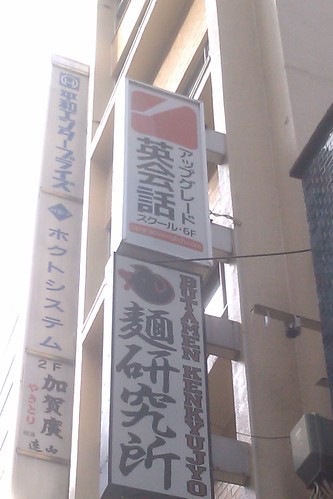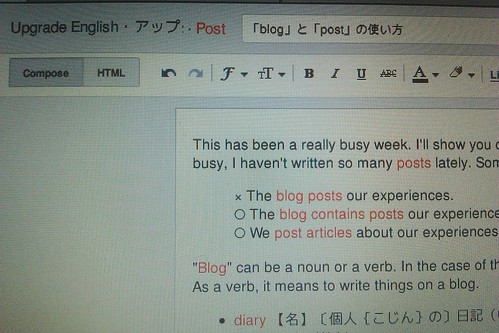One of the reasons I was busy recently is that we put up a new sign on our building. I hope it will make it easy for you all to find our building.
- put up a sign サイン[掲示板{けいじばん}・標示{ひょうじ}]を立てる[掲げる・掛ける](definition from Eijiro on the Web)
- put up with【句動】~に耐える、〔じっと〕~に我慢する◆【語源】put up(しまう、隠す)から。(definition from Eijiro on the Web)
- Put up or shut up! 行動で示すか、それができないんなら黙ってろ!(definition from Eijiro on the Web)
- put up 4. 掲揚{けいよう}する、揚げる、つる、掲示{けいじ}する、示す、発表{はっぴょう}する、上演{じょうえん}する、提出{ていしゅつ}する、提案{ていあん}する、提供{ていきょう}する、寄付{きふ}する (definition from Eijiro on the Web)
- put up an effort ~ make an effort 努力{どりょく}する (definition from Eijiro on the Web)
http://eow.alc.co.jp/put+up/UTF-8/Put up your hands if you have any questions. = Raise your hands...
- Raise your hand if you have any questions. 何か質問のある人は手を挙げて。(definition from Eijiro on the Web)
- Put your hands up! 手を上げろ!(definition from Eijiro on the Web)








